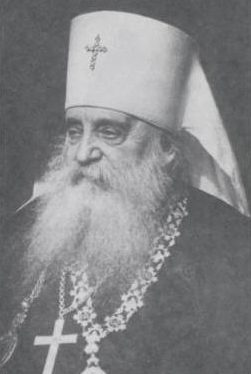 |
|
Thomas Sunday

Metropolitan Anthony (Khrapovitsky)
One can say that everyone rejoices when they hear the troparion of the Resurrection. But they sometimes grow bored when it is sung so often. This hymn, however, should be endlessly joyful to people: its continual repetition about the victory over death and the devil should be an infinite source of consolation. Therefore if this joy soon passes, it passes because one’s faith is not so living and strong. People find it difficult to believe because their souls do not especially love this victory. They say: “Thomas, who had been previously ready to die for Christ, also did not believe.” No, Thomas asked for assurances not because he did not believe but because he desired an untroubled faith, for he longed for the Resurrection and understood its significance.
Before their entry into Jerusalem, having learned that there would not be any external success but, to the contrary, that the Savior awaited suffering, the disciples thought that the same death awaited them as a reward for following Him. They were overcome by horror and fear, and then Thomas said: “Let us go that we might die with Him” (Jn 11:16). Thomas had a loyal heart. How many of them were troubled when they learned that there was not, and would not be, any external success! When He was to them a great Miracle-worker, healing them and giving them bread, they believed; but when they learned that He was ready to accept and bear the great deed [podvig] of patience and suffering for the sake of their spiritual benefit—then they all ran away, their faith weakened, and if their conscience rebuked them, they easily found an excuse in themselves: We thought that He was the One (Lk 24:21).
People say: “If we had seen Him we would not have denied Him.” This is not true: the majority of those who denied Him had seen Him, and they denied Him because they did not love spiritual values, and the victory over the devil spoke but little to their hearts; they desired external prosperity. Cases of full denial are not many. Normally a remnant of faith remains, and this half-acknowledgment and half-faith is perhaps even worse, and such half-believers are in the majority. If they were to be excluded from so-called believing society we would see that there are only a few true worshippers. The Church and the cross, unity in Christ, unity in the name of the struggle [podvig] of love—that is the outline of our relationship towards the Lord. But half-believers do not strive to understand either one or the other—unity or Christ’s love—in the way that Christians understand it.
Half-faith has many degrees, but one thing inevitably follows from all half-belief. Those who deny know both what they have denied and to what they must return. But the half-believer does not have any such clarity and grows accustomed to a life guided by sophistries, half-truth, and hints at some sort of supposed truth.
|
Archbishop Gregory Dormition Skete P.O. Box 3177 Buena Vista, CO 81211-3177 USA |
Contact: Archbishop Gregory
In a New Window. |
|
|
Copyright 2005 All rights reserved. |
